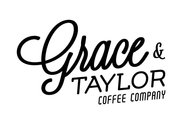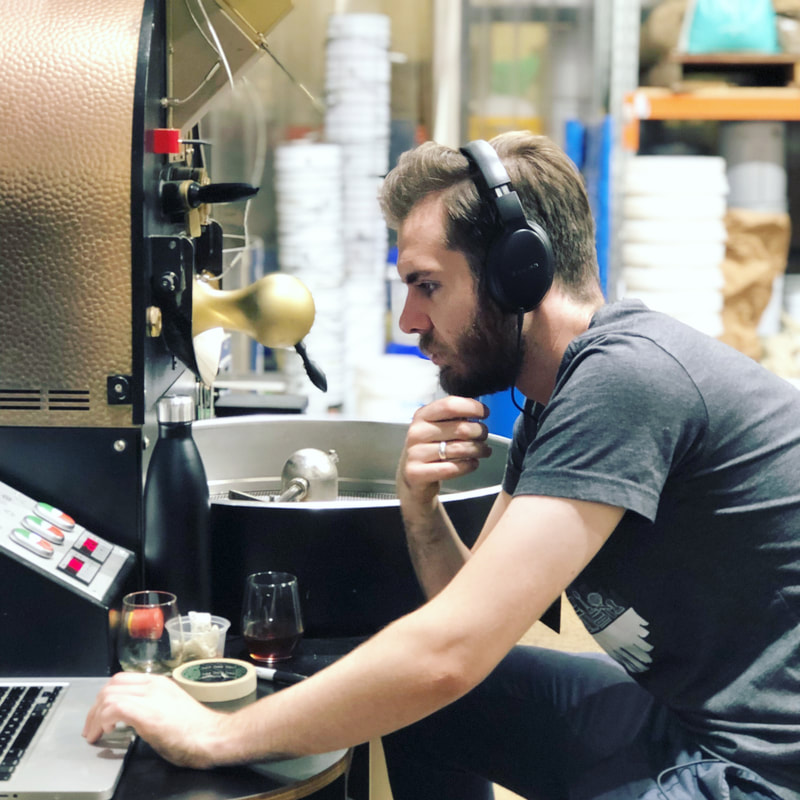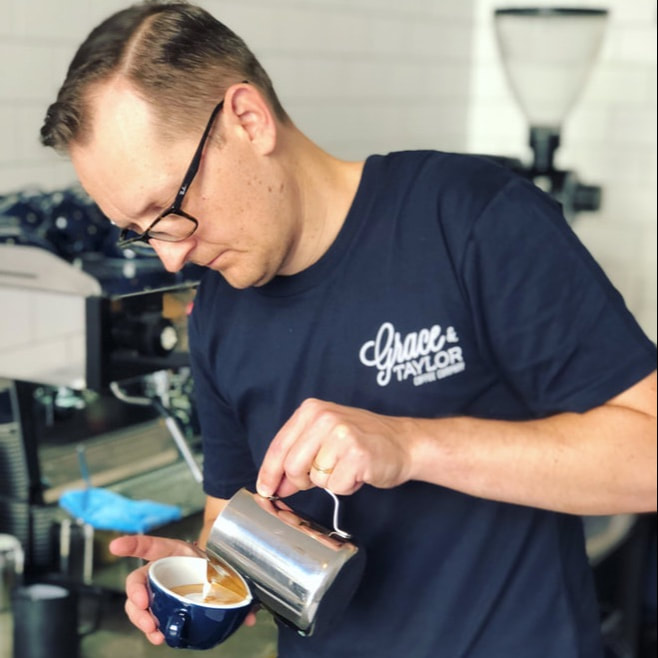Our Story
After owning several cafes in New Zealand, learning to roast in Brisbane and winning the QLD Barista Championship, Matt Troughton decided to open his own Roasting business in Sydney in 2014. The names Grace & Taylor are the middles names of his two children, the intention to build a large coffee family was baked in from the start.
Keith Klein moved from Northern NSW to Sydney ‘to study’ in 2014. But after growing up in his parents mobile coffee business, the excitement of Sydney’s coffee scene was always going to win out. From roasting coffees in a converted bread maker to passing the Q Grader examinations, roasting coffee was the next logical step.
After a chance meeting and a realization of common coffee goals, to create a coffee family and use our supply chain to create positive impact, we joined forces and worked to build Grace & Taylor to where it is today. We started by borrowing coffee roasters in various cafes and eventually Collective Roasting Solutions, before finally finding our current home, our own roasting warehouse in St Peter’s in 2017. The Probat P12 coffee roaster that Matt has learned to roast on became available at precisely that moment and it made total sense to keep the machine in the family.
As a nomadic company in our early days, we kept the family business going by setting up at events, markets and festivals. In 2016 we opened our first cafe as a pop up in Erskineville. This proved short lived as council didn’t approve of the ‘ask for forgiveness rather than permission’ approach. We learned from this and opened our first permanent cafe on King St in Newtown in 2017.
Sourcing coffee ethically is something that many roasters set out to do. But as this was the core principle that we were aligned behind, we quickly realized that the traceability offered by green coffee importers was entirely unsatisfactory. We’ve all been handed coffee card with a photo of a farm or farmer and processing, variety and altitude information on it. This is widely considered proof that the coffee meets the goals of specialty coffee and that the farmer is being fairly rewarded for their work. But we never quite felt comfortable with this norm. In 2016 Matt went to visit Colombia with some old friends from New Zealand to try and get a better picture of how the supply chain really works. The trip changed everything. He realized that the coffee market kept farmers powerless to improve their own situation and that those who most needed access to fair pricing, were the least likely to get it. Something like half the world’s coffee farmers live below the poverty line and are trapped in a cycle of disadvantage by the coffee market. As it happened, the friends on this trip had been building a social enterprise called Raw Material for the sole purpose of fixing this problem that we had been facing.
Raw Material find those coffee farmers that are most disadvantaged, find innovative ways to provide them with the information and skills to improve their coffee quality and then build the infrastructure and network to get their coffee to buyers like us. 100% of Raw Material’s profits are returned to farmers and the farmers in their network earn anywhere between 2-5 times as much for their coffee as they would have previously allowing them to escape the cycle of disadvantage. Since 2016 we have been buying as much of our coffee as possible from Raw Material. This began with Colombia, and now includes Burundi, Rwanda, Mexico and Timor-Leste with more origins in the works.
Keith Klein moved from Northern NSW to Sydney ‘to study’ in 2014. But after growing up in his parents mobile coffee business, the excitement of Sydney’s coffee scene was always going to win out. From roasting coffees in a converted bread maker to passing the Q Grader examinations, roasting coffee was the next logical step.
After a chance meeting and a realization of common coffee goals, to create a coffee family and use our supply chain to create positive impact, we joined forces and worked to build Grace & Taylor to where it is today. We started by borrowing coffee roasters in various cafes and eventually Collective Roasting Solutions, before finally finding our current home, our own roasting warehouse in St Peter’s in 2017. The Probat P12 coffee roaster that Matt has learned to roast on became available at precisely that moment and it made total sense to keep the machine in the family.
As a nomadic company in our early days, we kept the family business going by setting up at events, markets and festivals. In 2016 we opened our first cafe as a pop up in Erskineville. This proved short lived as council didn’t approve of the ‘ask for forgiveness rather than permission’ approach. We learned from this and opened our first permanent cafe on King St in Newtown in 2017.
Sourcing coffee ethically is something that many roasters set out to do. But as this was the core principle that we were aligned behind, we quickly realized that the traceability offered by green coffee importers was entirely unsatisfactory. We’ve all been handed coffee card with a photo of a farm or farmer and processing, variety and altitude information on it. This is widely considered proof that the coffee meets the goals of specialty coffee and that the farmer is being fairly rewarded for their work. But we never quite felt comfortable with this norm. In 2016 Matt went to visit Colombia with some old friends from New Zealand to try and get a better picture of how the supply chain really works. The trip changed everything. He realized that the coffee market kept farmers powerless to improve their own situation and that those who most needed access to fair pricing, were the least likely to get it. Something like half the world’s coffee farmers live below the poverty line and are trapped in a cycle of disadvantage by the coffee market. As it happened, the friends on this trip had been building a social enterprise called Raw Material for the sole purpose of fixing this problem that we had been facing.
Raw Material find those coffee farmers that are most disadvantaged, find innovative ways to provide them with the information and skills to improve their coffee quality and then build the infrastructure and network to get their coffee to buyers like us. 100% of Raw Material’s profits are returned to farmers and the farmers in their network earn anywhere between 2-5 times as much for their coffee as they would have previously allowing them to escape the cycle of disadvantage. Since 2016 we have been buying as much of our coffee as possible from Raw Material. This began with Colombia, and now includes Burundi, Rwanda, Mexico and Timor-Leste with more origins in the works.


